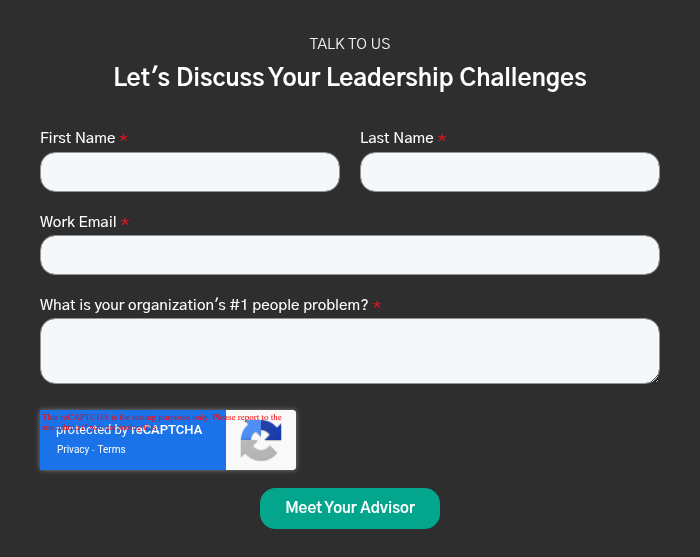Common Mistakes Hiring Team Make: Lessons from the Frontlines of Failed Hires
November 19th, 2025
4 min read
By John Gave

The boardroom was tense as the CEO recounted the costly fallout of what was supposed to be a model hiring process. The leadership team had been convinced they had found their next star—a candidate who checked every box, who had been thoroughly interviewed, and who seemed to fit seamlessly into the company’s culture. Every sign pointed to a win. Within months, the story had unraveled. Performance issues mounted, team morale declined, and by the end of the year, the company found itself embroiled in a lawsuit brought by the very candidate they had once celebrated. The case ended with a $25,000 settlement and a hard lesson in the true cost of hiring mistakes.
These experiences are not isolated. Many organizations believe their hiring process is robust, but costly errors often reveal deeper flaws in the system. As The Metiss Group has seen with clients across industries, the pain of a mis-hire is rarely about a single failure. It is a result of preventable missteps that compound over time, ultimately undermining both business performance and leadership confidence.
Expertise in hiring strategy is built on more than intuition and experience. It is informed by research, supported by evidence, and refined through the rigorous application of best practices. The Metiss Group’s decades of leadership consulting and executive selection processes have shown even sophisticated hiring teams are prone to recurring errors. The following analysis distills those lessons and offers practical guidance to ensure hiring teams not only avoid costly mistakes but also build a sustainable foundation for high-performance talent acquisition.
This article provides a structured review of the most common mistakes hiring teams make. It offers pragmatic recommendations, all grounded in data and experience, to help organizations strengthen their hiring processes and achieve better outcomes.
In this article, you will learn:
- Why Single Assessments Are Not Enough in the Hiring Process
- How the Timing of Assessments Impacts Hiring Outcomes
- The Strategic Value of Effective Reference Checks
- The Role of Job Scorecards in Objective Hiring
- Balancing Interview Quantity and Candidate Experience
Why Single Assessments Are Not Enough in the Hiring Process
Many hiring teams appreciate the importance of assessment tools in evaluating candidates. However, a prevalent mistake is the overreliance on a single type of assessment, often a behavioral profile such as Predictive Index or similar instruments. While behavioral assessments offer insights into work styles and preferences, they represent only one dimension of a candidate’s potential. Relying on one assessment can distort decision-making and obscure critical gaps in skills, motivation, or cultural alignment.
Robust hiring processes leverage multi-science assessments, combining cognitive, behavioral, and emotional intelligence measures. This approach provides a more complete picture of a candidate’s suitability for both the demands of the job and the realities of the workplace environment. By integrating multiple data points, hiring teams gain a nuanced understanding to improve both accuracy and long-term fit. The Metiss Group’s methodology emphasizes this integrated perspective, advocating for hiring assessments to illuminate both what a candidate can do and how they are likely to approach challenges.
How the Timing of Assessments Impacts Hiring Outcomes
Another frequent misstep occurs not in what is assessed, but when. Some teams front-load assessments early in the process, hoping to streamline selection by quickly weeding out poor fits. While efficiency is valuable, this approach risks alienating candidates who are still learning about the role. Premature assessments may produce disengaged responses, leading to false negatives and unnecessary attrition of high-potential candidates.
Conversely, assessing too late in the process carries a different risk: once a hiring team becomes enamored with a candidate, assessment results are often viewed through a subjective lens. Objective analysis is compromised as teams seek to confirm their prior judgments rather than evaluate the candidate dispassionately.
The most effective hiring practices integrate assessments at a stage where both parties have enough information to make informed decisions, but before emotional investment clouds objectivity. This balance allows for thoughtful consideration of results, supports more transparent conversations with candidates, and enhances overall hiring accuracy.
The Strategic Value of Effective Reference Checks
Reference checks are frequently dismissed as a formality or skipped entirely. Many hiring teams cite a lack of useful insight, attributing this to generic questions or perfunctory verification. The real issue is not the concept of reference checking, but its execution.
Best practice reference checks go beyond simple inquiries about employment dates or the perfunctory “Would you rehire this person?” The focus should shift to behavioral questions to probe for specific situations relevant to the role and the gaps uncovered during the assessment phase. For instance, if an assessment reveals uncertainty about a candidate’s conflict resolution skills, references should be asked for real examples in that area.
The technique popularized by Brad Smart, known as the Threat of Reference Check (TORC), transforms the process further. By informing candidates early that detailed reference checks will be conducted, hiring teams encourage only those comfortable with full transparency to proceed. This proactive approach increases the likelihood of receiving honest, actionable feedback and discourages candidates with problematic histories from moving forward.

The Role of Job Scorecards in Objective Hiring
Too many organizations attempt to hire for roles that lack clear, documented criteria for success. The absence of a job scorecard not only hinders objective evaluation but also confuses both candidates and hiring teams about the real requirements of the position.
A job scorecard outlines the activities, priorities, time allocations, and measurable outcomes expected from the new hire. Sharing the scorecard with candidates early in the process fosters alignment and transparency. It also enables candidates to self-select based on fit, reducing the risk of later-stage surprises or misunderstandings. For the hiring team, the scorecard provides a structured framework for both screening and interviewing, guiding more consistent and relevant questions.
The Metiss Group’s approach incorporates job scorecards as a standard practice, ensuring all stakeholders—executives, recruiters, and candidates—share a common understanding of success. This discipline dramatically increases the likelihood of a productive, lasting hire.
Balancing Interview Quantity and Candidate Experience
Interview fatigue is a real and growing concern among candidates. Some organizations subject candidates to an excessive number of interviews, believing more data points lead to better decisions. The reality is that drawn-out processes discourage top talent, particularly those who are highly sought after.
At the opposite extreme, too few interviews prevent the hiring team from truly understanding the candidate. Rushed or superficial processes miss the subtle, contextual insights that separate high performers from the rest.
The optimal approach is to design a structured interview sequence—sufficient in depth and breadth, but respectful of candidates’ time and energy. Each interview should have a clear objective and build upon the previous conversations. Well-structured interviews, combined with effective assessments and reference checks, offer a holistic view of the candidate and reduce the risk of a costly mis-hire.
Takeaways
The most damaging hiring mistakes are rarely the result of bad intentions. They stem from unexamined habits, incomplete processes, and a lack of disciplined evaluation. Organizations that commit to evidence-based hiring—integrating multi-science assessments, strategic timing, robust reference checks, objective scorecards, and balanced interviews—are positioned to make better, more sustainable hiring decisions.
Ultimately, the cost of avoiding these mistakes far outweighs the investment in a rigorous hiring process. As leaders seek to build resilient, high-performing teams, embracing best practices in hiring is not merely a procedural choice. It is a strategic imperative. The Metiss Group stands ready to support organizations in building the systems and skills required to turn hiring from a vulnerability into a sustainable advantage.
Topics:























